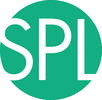Difference between revisions of "Documentation/Nightly/Modules/DWIConverter"
| Line 30: | Line 30: | ||
<!-- ---------------------------- --> | <!-- ---------------------------- --> | ||
{{documentation/{{documentation/version}}/module-section|Use Cases}} | {{documentation/{{documentation/version}}/module-section|Use Cases}} | ||
| − | + | * Loading DICOM diffusion MRI data into Slicer. | |
| + | * Conversion of diffusion weighted images (DWIs) from DICOM format to nrrd or nifti formats. | ||
| + | |||
<!-- ---------------------------- --> | <!-- ---------------------------- --> | ||
Revision as of 17:41, 5 August 2016
Home < Documentation < Nightly < Modules < DWIConverter
|
For the latest Slicer documentation, visit the read-the-docs. |
Introduction and Acknowledgements
|
This work is part of the National Alliance for Medical Image Computing (NA-MIC), funded by the National Institutes of Health through the NIH Roadmap for Medical Research, Grant U54 EB005149. Information on NA-MIC can be obtained from the NA-MIC website. | |||||
|
Module Description
Converts diffusion weighted MR images in dicom series into Nrrd format for analysis in Slicer. This program has been tested on only a limited subset of DTI dicom formats available from Siemens, GE, and Phillips scanners. Work in progress to support dicom multi-frame data. The program parses dicom header to extract necessary information about measurement frame, diffusion weighting directions, b-values, etc, and write out a nrrd image. For non-diffusion weighted dicom images, it loads in an entire dicom series and writes out a single dicom volume in a .nhdr/.raw pair.
Use Cases
- Loading DICOM diffusion MRI data into Slicer.
- Conversion of diffusion weighted images (DWIs) from DICOM format to nrrd or nifti formats.
Tutorials
- Tutorial: http://slicerdmri.github.io/docs/tutorials/DWIConverterTutorial.pdf
- Test data: http://slicer.kitware.com/midas3/download/item/93008/SiemensTrioTim2.tar.gz
Panels and their use
Parameters:
- Conversion Options: Options that are used for all conversion modes
- Input DWI Volume file (inputVolume): Input DWI volume -- not used for DicomToNrrd mode.
- Output DWI Volume file (outputVolume): Output filename (.nhdr or .nrrd)
- Dicom To Nrrd Conversion Parameters: Parameters for Dicom to NRRD Conversion
- Input Dicom Data Directory (inputDicomDirectory): Directory holding Dicom series
- NiftiFSL To Nrrd Conversion Parameters: NiftiFSL To Nrrd Conversion Parameters
- Input bval file (inputBValues): The B Values are stored in FSL .bval text file format
- Input bvec file (inputBVectors): The Gradient Vectors are stored in FSL .bvec text file format
- Nrrd To NiftiFSL Conversion Parameters: Nrrd To NiftiFSL Conversion Parameters
- Output bval file (outputBValues): The B Values are stored in FSL .bval text file format (defaults to <outputVolume>.bval)
- Output bvec file (outputBVectors): The Gradient Vectors are stored in FSL .bvec text file format (defaults to <outputVolume>.bvec)
- Advanced Conversion Parameters: Options to control the output.
- Output fMRI file (fMRIOutput): Output a NRRD file, but without gradients
- Write Protocol Gradients File (writeProtocolGradientsFile): Write the protocol gradients to a file suffixed by ".txt" as they were specified in the procol by multiplying each diffusion gradient direction by the measurement frame. This file is for debugging purposes only, the format is not fixed, and will likely change as debugging of new dicom formats is necessary.
- Use Identity Measurement Frame (useIdentityMeaseurementFrame): Adjust all the gradients so that the measurement frame is an identity matrix.
- Use BMatrix Gradient Directions (useBMatrixGradientDirections): Fill the nhdr header with the gradient directions and bvalues computed out of the BMatrix. Only changes behavior for Siemens data. In some cases the standard public gradients are not properly computed. The gradients can emperically computed from the private BMatrix fields. In some cases the private BMatrix is consistent with the public grandients, but not in all cases, when it exists BMatrix is usually most robust.
- Output Directory (outputDirectory): Directory holding the output NRRD file
- Gradient Vector File (gradientVectorFile): Text file giving gradient vectors
- Small Gradient Threshold (smallGradientThreshold): If a gradient magnitude is greater than 0 and less than smallGradientThreshold, then DWIConvert will display an error message and quit, unless the useBMatrixGradientDirections option is set.
List of parameters generated transforming this XML file using this XSL file. To update the URL of the XML file, edit this page.
Similar Modules
N/A
References
N/A
Information for Developers
| Section under construction. |

